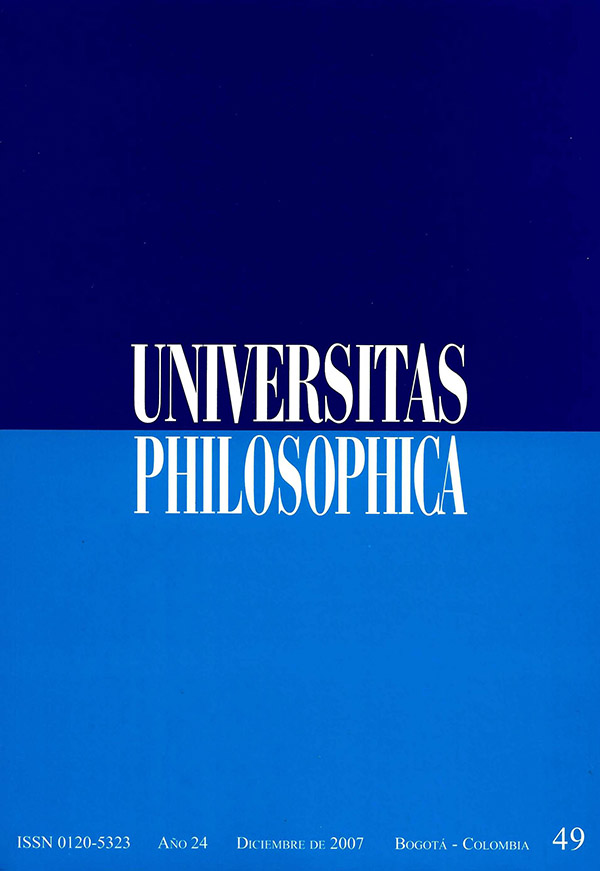Resumo
El artículo sostiene que es posible entender los dispositivos de poder mediante la caracterización de dos elementos que los componen: el papel de los enunciados como funciones que agencian las determinaciones y las sujeciones políticas en el cuerpo social, y el poder. Así, se mostrará en la primera parte, que en el análisis arqueológico de los enunciados se establecen las reglas internas de organización del discurso, al tiempo que se reconoce su relación con el espacio social en el que emergen. En la segunda, se intenta matizar esa relación mediante el concepto de performatividad. La tercera parte busca responder esa pregunta y entender su respuesta como la clave de la relación del lenguaje con el poder. Finalmente, se trata de conectar las tesis de Ducrot sobre los performativos con las tesis foucaultianas sobre el poder, indicando que los enunciados son actos y que los efectos del lenguaje en los sujetos no dependen de factores exteriores sino del hecho de que se integran como funciones a las relaciones de poder.Esta revista científica se encuentra registrada bajo la licencia Creative Commons Reconocimiento 4.0 Internacional. Por lo tanto, esta obra se puede reproducir, distribuir y comunicar públicamente en formato digital, siempre que se reconozca el nombre de los autores y a la Pontificia Universidad Javeriana. Se permite citar, adaptar, transformar, autoarchivar, republicar y crear a partir del material, para cualquier finalidad (incluso comercial), siempre que se reconozca adecuadamente la autoría, se proporcione un enlace a la obra original y se indique si se han realizado cambios. La Pontificia Universidad Javeriana no retiene los derechos sobre las obras publicadas y los contenidos son responsabilidad exclusiva de los autores, quienes conservan sus derechos morales, intelectuales, de privacidad y publicidad.
El aval sobre la intervención de la obra (revisión, corrección de estilo, traducción, diagramación) y su posterior divulgación se otorga mediante una licencia de uso y no a través de una cesión de derechos, lo que representa que la revista y la Pontificia Universidad Javeriana se eximen de cualquier responsabilidad que se pueda derivar de una mala práctica ética por parte de los autores. En consecuencia de la protección brindada por la licencia de uso, la revista no se encuentra en la obligación de publicar retractaciones o modificar la información ya publicada, a no ser que la errata surja del proceso de gestión editorial. La publicación de contenidos en esta revista no representa regalías para los contribuyentes.


